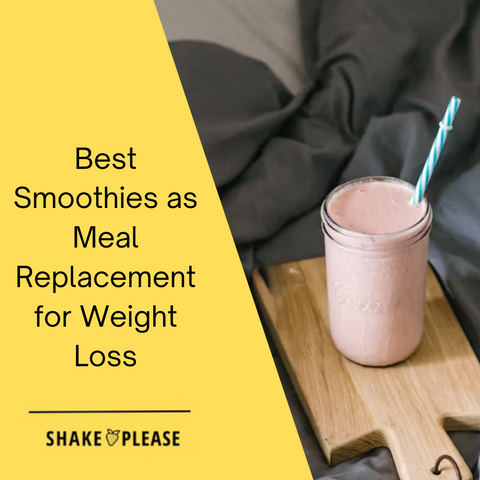
Introduction to Meal Replacements
Meal replacements, including meal replacement shakes, are specially formulated foods or beverages designed for meal replacement, providing the nutrition of a complete meal and a balanced macronutrient profile to support weight management and a healthy diet. They come in various forms, including shakes, bars, and powders, and are crafted to mimic the nutritional profile of a typical meal by offering balanced amounts of protein, carbohydrates, fats, fiber, vitamins, and minerals.
These products are especially convenient for busy lifestyles, helping you meet your nutritional needs without the time and effort of preparing traditional meals. When selecting a meal replacement shake, it’s important to consider factors such as nutritional value, protein content, and added sugars to ensure the product aligns with your dietary needs and goals, especially among various meal replacement shakes available on the market . Opting for meal replacements made with healthy foods, whole foods, plant-based proteins, and minimal artificial ingredients can provide a healthier and more satisfying option.
Understanding Protein Shakes
Protein shakes, also known as protein supplements or protein drinks, are supplements designed to provide a high protein intake that supports muscle recovery, growth, and weight management. Compared to meal replacements, they typically contain fewer calories and less fiber but serve as an effective way to boost protein consumption.
Common protein sources in shakes include pea protein, brown rice protein, whey protein, and flax seeds, found in both commercial products and homemade recipes, which are often categorized as protein supplements . These supplements help enhance muscle recovery and support muscle protein synthesis, allowing for more protein intake.
When choosing a protein shake, it’s important to consider factors like the amino acid profile, total protein content, and any added ingredients to ensure the shake aligns with your health and fitness goals. Protein shakes can be used as convenient snacks or post-workout drinks to promote satiety for weight loss, support muscle mass retention, or increase calorie intake for weight gain, aligning with weight management goals.
Meal Replacement 101: Everything You Need to Know About this Nutrition Trend
Meal Replacements and Protein
Meal replacements and protein shakes each play unique roles in supporting health and fitness, often serving as a complete meal or supplement. Here’s how meal replacement shakes and protein shakes work together to help you meet your nutrition goals:
-
Different Purposes: Meal replacements provide balanced nutrition, while protein shakes focus on delivering extra protein for muscle growth and recovery.
-
Complementary Use: Combining meal replacements with protein shakes can enhance weight management and support muscle gain.
-
Professional Guidance: Consulting a registered dietitian nutritionist can help tailor the best approach for your individual nutritional needs and health goals.
-
Balanced Diet: Incorporating whole foods alongside meal replacements and protein shakes ensures you get essential nutrients for optimal health.
-
Support Overall Health: Together, these options provide balanced nutrition and key nutrients to support your fitness and wellness journey.
Using meal replacements and protein shakes thoughtfully can help you achieve a well-rounded, effective nutrition plan that will support health.
Types of Meal Replacements
Meal replacement shakes come in a variety of flavors and formulations to suit different tastes and dietary needs. Here are key points to consider:
-
Flavor Variety: Available in multiple flavors, including popular coffee options.
-
Protein Sources: Made with diverse proteins like pea protein, brown rice, or plant-based blends.
-
Special Diets: Some are gluten-free, USDA organic certified, or feature allergen-free ingredients like organic pea protein.
-
Powdered Options: Meal replacement powders offer flexibility for those who prefer to customize their nutrition.
-
Nutritional Value: Evaluate ingredients, vitamins, minerals, and health benefits to choose the best product for your goals.
-
Health Support: Look for options containing prebiotic fiber and essential nutrients to promote overall wellness.
Understanding these types helps you select meal replacements that align with your dietary preferences and health objectives.
Benefits of Meal Replacements
Meal replacements offer several advantages for those aiming to improve their health and fitness, including potential benefits for weight loss :
-
Support Fitness Goals: Aid in weight loss, weight management, and muscle gain.
-
Convenience: Provide a quick, balanced meal option ideal for busy lifestyles.
-
Portion Control: Help prevent overeating and promote healthy eating habits.
-
Simplify Calorie Counting: Nutritional content is clearly labeled, making it easier to manage calorie intake.
-
Calorie-Controlled: Typically contain 150 to 400 calories, suitable for weight management plans.
-
Nutrient-Rich: Supply essential vitamins and minerals to support overall health.
Incorporating meal replacements into a calorie-controlled diet with portion control can be an effective strategy for achieving and maintaining your health goals while ensuring you get enough protein .
Protein Foods and Shakes
Combining protein-rich foods with protein shakes is a highly effective strategy to support muscle growth, recovery, and overall fitness. Here’s a detailed look at how to optimize your protein intake:
-
Complementary Role of Protein Foods and Shakes: Lean protein foods such as chicken, fish, eggs, and legumes provide essential amino acids that support muscle repair and growth. When paired with protein shakes, they help ensure you meet your daily protein requirements, especially important for athletes, fitness enthusiasts, or those recovering from injury.
-
Versatility of Protein Powders: Protein powders, including whey, pea, and brown rice protein, can be easily added to meals like oatmeal, smoothies, or baked goods, or consumed as convenient snacks. This flexibility makes it easier to increase protein intake throughout the day without extra meal prep.
-
Key Factors in Choosing Protein Sources: When selecting protein foods or shakes, consider the total protein content per serving, the amino acid profile (complete proteins contain all essential amino acids), and the presence of added ingredients such as sugars, fillers, or artificial additives. Opting for clean, minimally processed options supports better health outcomes.
-
Supporting Muscle Protein Synthesis: Protein shakes are especially valuable post-workout to stimulate muscle protein synthesis, aiding in faster recovery and muscle maintenance. They provide a quick, easily digestible source of protein that can be absorbed efficiently by the body.
-
Healthier Protein Shake Options: Look for protein shakes with minimal added sugars, no artificial ingredients, and free from sugar alcohols, which can cause digestive discomfort. Choosing high-quality protein shakes ensures you get the benefits without unwanted additives.
Shake Please Protein Smoothies
Shake Please offers a range of protein-packed smoothies made with protein powder designed to support muscle growth, recovery, and weight management. Each smoothie contains 25 grams of high-quality whey protein and usda organic pea protein combined with nutrient-dense fruits, nuts, and superfoods, making them a convenient and delicious option.
Popular Shake Please smoothie flavors include:
-
Strawberry Banana Protein Smoothie: A naturally sweet blend of ripe strawberries and bananas, perfect for a post-workout boost.
-
Chocolate Peanut Butter Banana Protein Smoothie: Rich and indulgent, combining chocolate, peanut butter, and banana for a satisfying recovery drink.
-
Vanilla Berry Protein Smoothie: Smooth vanilla paired with antioxidant-rich berries for a refreshing and nutritious option.
-
Pineapple Berry Protein Smoothie: Tropical pineapple and mixed berries deliver a vibrant, vitamin-packed flavor ideal for any time of day.
Incorporating Shake Please protein smoothies into your diet can help you conveniently meet your protein needs and allow you to get more protein while enjoying delicious, nutrient dense foods and flavors that support your fitness and health goals.
Choosing the Right Option
When deciding between protein shakes and meal replacement shakes, it’s essential to first identify your personal health goals and nutritional needs:
-
Meal Replacement Shakes: Ideal if your focus is weight management or replacing a full meal during a busy day. These shakes provide a balanced mix of macronutrients—protein, carbohydrates, fats—along with essential vitamins and minerals to keep you satisfied and energized. They are designed to substitute entire meals and support overall nutrition.
-
Protein Shakes: Best suited for those aiming to increase protein intake for muscle recovery, growth, or meeting higher protein demands. Protein shakes typically offer higher protein content with fewer calories and less fiber, making them perfect for post-workout recovery or supplementing your diet with extra protein.
To make the most informed choice, consider consulting a registered dietitian nutritionist. They can evaluate your individual nutritional needs and recommend whether a meal replacement or protein shake aligns better with your health and fitness goals.
Protein Shake vs Meal Replacement - Making the Healthiest Choice
Incorporating Meal Replacements into Your Diet
Adding meal replacements to your daily routine is an effective way to support weight management and meet nutritional needs, especially during busy times. When choosing a meal replacement shake, look for options that are USDA organic certified, gluten-free, and made with nutrient-dense ingredients. Focus on protein content, calorie count, and nutrient balance to ensure the shake fits your dietary goals.
Meal replacement powders offer versatility, allowing you to mix them with your favorite milk or milk alternative for a personalized meal. For maximum health benefits, select shakes that include prebiotic fiber, essential amino acids, and healthy fats to support digestion, muscle maintenance, and sustained energy.
By thoughtfully incorporating meal replacements and meal replacement shakes into your diet, you can enjoy the convenience of quick, balanced meals without compromising your health or nutrition goals.
Conclusion
In summary, both meal replacement shakes and protein shakes can play valuable roles in supporting your health and wellness journey. By understanding the unique benefits of each and considering your individual needs, you can confidently choose the option that best fits your lifestyle. Remember, a balanced diet rich in whole foods should always be the foundation of healthy eating, with meal replacements and protein shakes serving as convenient supplements or occasional meal substitutes.
Whether your goal is weight management, muscle growth, or simply maintaining a healthy diet, always check the nutritional value and ingredient list of any product to ensure it meets your standards. For personalized guidance, consult a registered dietitian nutritionist who can help you tailor your approach to your specific health goals. With mindful choices and a focus on balanced nutrition, you can make meal replacements and protein shakes a beneficial part of your healthy routine, especially if you aim to lose weight .





